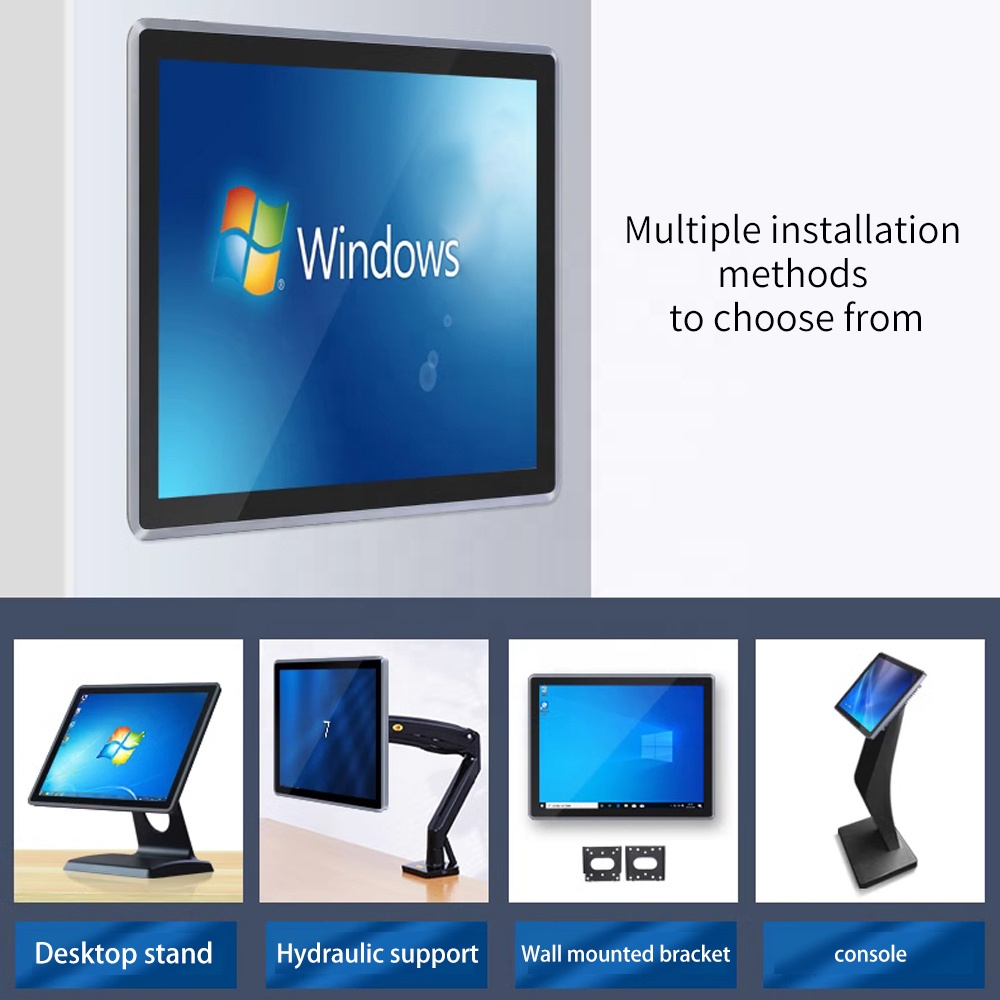What is the difference between industrial PC and personal PC?
2024-09-10
Usage
- Industrial Computer:It is mainly used in industrial control, automated production, data acquisition and other industrial fields. For example, in the automated production line of the factory, the small industrial pc can monitor and control the production equipment in real time, such as the robotic welding equipment in the automobile manufacturing workshop, and accurately control the position, speed and other parameters of the welding through the pc fanless. It needs to run stably for a long time to ensure that the industrial production process is uninterrupted, and can adapt to harsh industrial environments, such as high temperature, high humidity, dust, strong electromagnetic interference, etc.
- Personal PC:It focuses on meeting the daily office, entertainment, and study needs of individual users. For example, it is used for word processing, office software for creating spreadsheets, or for leisure and entertainment activities such as watching videos and playing games. It is generally used in a more comfortable indoor environment, such as home, office and other places.

Hardware design aspects
industrial pc
- High Reliability:It adopts high-quality and durable electronic components, which has better anti-vibration and anti-impact performance. For example, the hard disk of industrial PCs usually uses solid-state drives (SSDs), which have no mechanical parts and are less prone to damage in vibration environments than traditional mechanical hard drives, and have faster data read and write speeds, which can meet the needs of fast storage and reading of industrial data.
- Scalability:There are abundant interfaces, such as multiple serial ports (COM ports), parallel ports, USB ports, etc. These interfaces make it easy to connect a wide range of industrial devices such as sensors, controllers, industrial printers, and more. For example, in an environmental monitoring system, an industrial PC can collect environmental data in real time by connecting multiple temperature and humidity sensors via a serial port.
- Good protection:The chassis generally has good sealing, which can effectively prevent dust and liquids from entering the chassis. Some industrial PC cases also have a special coating that prevents corrosion.
Personal PC
- Variety of designs:More attention is paid to aesthetics and portability. Laptops, for example, are designed to be thin and lightweight, and are available in a variety of colors and exterior styles for ease of portability.
- High flexibility in hardware configuration:Users can choose different combinations of hardware configurations according to their needs, such as choosing a high-performance graphics card for gaming, or a high-capacity hard disk for storing a large number of files. However, in terms of hardware durability and stability, the requirements are slightly lower than those of industrial PCs.
Software system aspects
Industrial PC
- The system is streamlined and stable:It typically runs a custom operating system, such as Windows Embedded or some industrial version of Linux. These systems remove some unnecessary features, enhance the stability and security of the system, and reduce the risk of system crashes. Because in industrial production processes, system failures can lead to serious production accidents and economic losses.
- Strong software professionalism:The installed software is mainly industrial control software, data acquisition software and other professional software. These software need to be matched to specific industrial equipment and production processes, and often need to undergo rigorous testing and validation to ensure their accuracy and reliability.
Personal PC
- The system is feature-rich:For example, the Windows operating system provides rich multimedia functions, network functions, etc. Users can easily install various types of software, including office software, entertainment software, graphic design software, and many other software for different purposes.
- Frequent Software Updates:In order to meet the needs of users for new features and security protection, software developers frequently update software versions. For example, the operating system regularly releases security patches and feature updates, and applications are constantly improving the interface and adding new features.

 Mr. zptouch01
Mr. zptouch01




